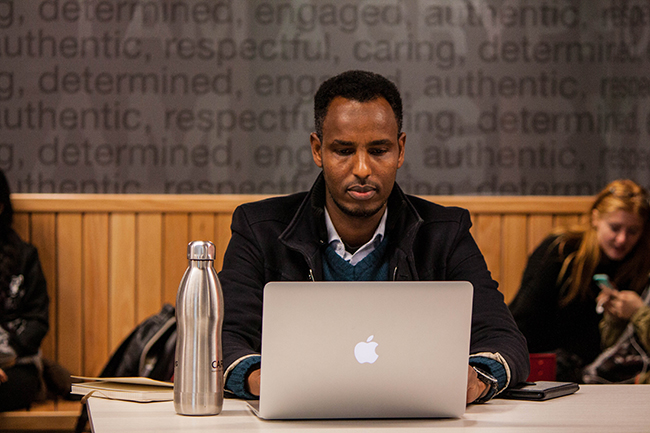
"We like you, but we don’t know you. We need to know more about who you are. We want you to open up." This was said during my performance review. Being an introvert and new to the organization, this feedback put me in a state of panic. Why was I given this feedback? I thought I was being friendly by asking everyone how their weekends went. I joined in watercooler talk. I offered to carpool with a co-worker who lived close by. "What am I not doing?", I thought to myself. How can you measure personal transparency? What is the goal? Do I share my fear, worries, and family secrets? What exactly did "open up" mean? Friends and family warned, "...we can’t open up. Don’t tell them your business, because they don’t care. You will be judged."
Just how open are you at work? Do you share personal experiences with your coworkers? How many of your co-workers are now your real friends? Is being open to exchange pleasantries and light banter enough? Do others in the workplace think you share enough of yourself? How necessary is it?
Apparently, it is very necessary according to Carla Harris, who spoke to NIH audiences about "Tools to Maximize Your Success". Performance ratings are important, but it’s relationships that help us excel in our careers. Carla Harris, Vice Chairperson of Morgan Stanley, defined relationship currency as, "investing in the people in your environment." She warns that failing to make human connections and interactions in the workplace is detrimental to progress in your career. But for some minorities, accruing relationship currency isn’t as simple as it sounds. How many times have you heard someone say, "I do my 8 hours and go home." or "I’m not here to make friends, I’m here to do my job." Coincidentally, most of those people are the minorities in their workplaces. Treading carefully is what many minorities do because it feels safer. But, why?
Recently the Harvard Business Review (HBR) published an article on Diversity and Authenticity - Why Black Employees Hesitate to Open Up About Themselves, it discussed building workplace relationships across racial boundaries. The study shed light on why black employees hesitate to share more of themselves. Although the research focuses on African-Americans, it also applies to all who find themselves as the minority in the workplace. Over 300 employees from various industries, with different racial and ethnic backgrounds were surveyed. The findings revealed minority employees lacked trust, fearing information they share will be used against them.
After reading this research, you may find that "opening up" in the workplace is less about sharing personal experiences, as it is more about stepping out of our comfort zones and hiding places. Acknowledging our obvious differences, rather than pretending they don’t exist (i.e., color blindness) isn’t effective for building relationships – it’s problematic. Collaborating on work projects can be a way to open-up; it can aid in building bridges and creating connections. Over time, these collaborations may grow- organically- into more meaningful relationships, ultimately increasing your relationship currency.
Are you less inclined to open up at work? Tell us why on Twitter and LinkedIn.
Do you have a story idea for us? Do you want to submit a guest blog? If it's about equity, diversity, or inclusion, please submit to edi.stories@nih.gov.
For news, updates, and videos, follow or subscribe to EDI on: Twitter, Instagram, Blog, YouTube.






